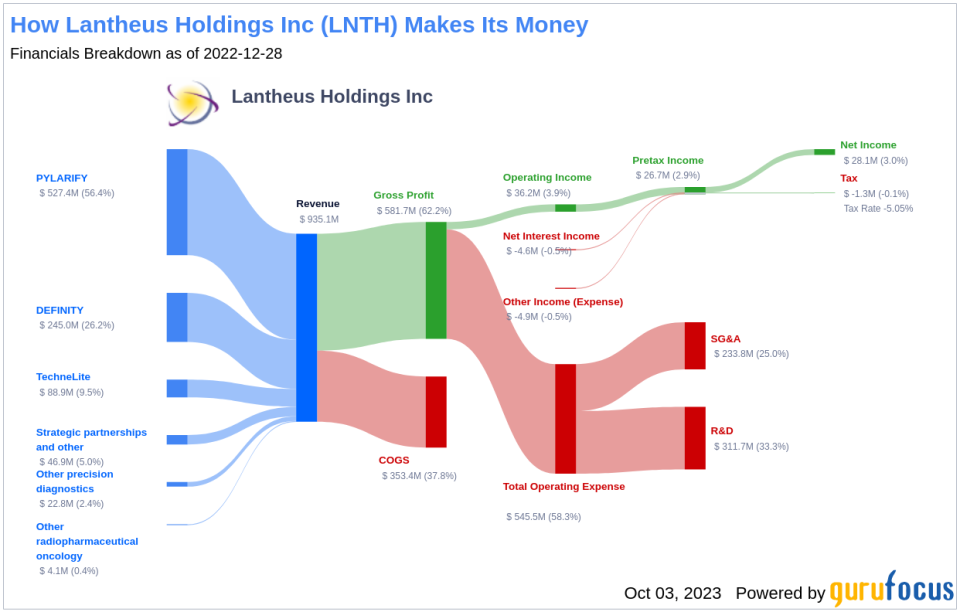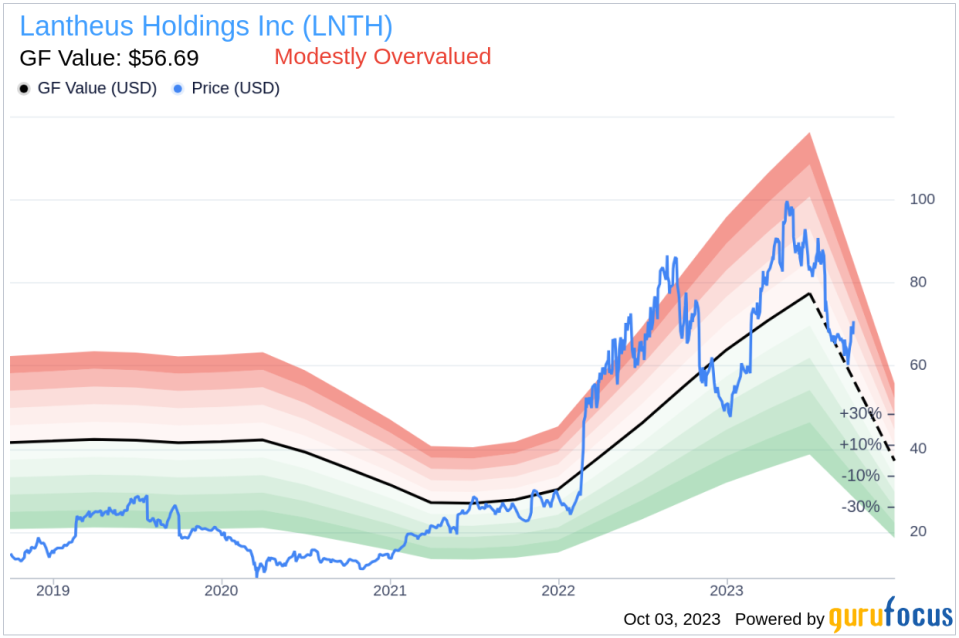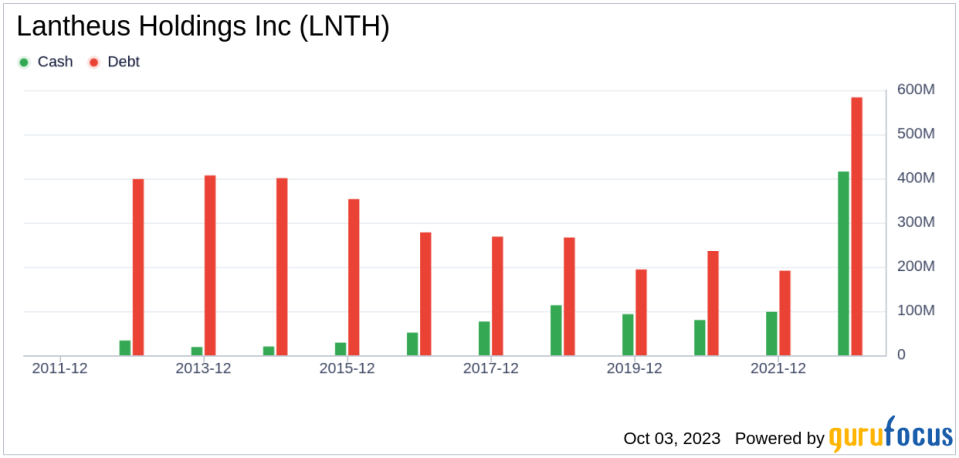Unveiling Lantheus Holdings (LNTH)'s Value: Is It Really Priced Right? A Comprehensive Guide
With a daily gain of 4.97%, a 3-month loss of 14.01%, and an Earnings Per Share (EPS) of 0.41, Lantheus Holdings Inc (NASDAQ:LNTH) presents an intriguing investment proposition. This article aims to answer the question: Is Lantheus Holdings (NASDAQ:LNTH) modestly overvalued? Let's dive into a comprehensive valuation analysis of the company.
Introduction to Lantheus Holdings
Lantheus Holdings Inc, a key player in the United States healthcare sector, specializes in the development of diagnostic products. The company's products fall into three categories: Precision Diagnostics, Radiopharmaceutical Oncology, and Strategic Partnerships and Other Revenue. With a current stock price of $71.01 and a GF Value of $56.69, Lantheus Holdings (NASDAQ:LNTH) appears to be modestly overvalued. This assessment paves the way for a deeper exploration of the company's intrinsic value, integrating essential company details with financial assessment.
Unpacking the GF Value
The GF Value is a proprietary calculation representing the current intrinsic value of a stock. It is based on historical multiples, a GuruFocus adjustment factor, and future business performance estimates. If the stock price is significantly above the GF Value Line, it's overvalued, and its future return is likely to be poor. Conversely, if it's significantly below the GF Value Line, its future return will likely be higher.
Lantheus Holdings (NASDAQ:LNTH), with its current price of $71.01 per share and a market cap of $4.90 billion, is estimated to be modestly overvalued according to the GuruFocus Value calculation. As a result, the long-term return of its stock is likely to be lower than its business growth.
Link: These companies may deliver higher future returns at reduced risk.
Financial Strength of Lantheus Holdings
Companies with poor financial strength pose a high risk of permanent capital loss to investors. To avoid this, it's essential to review a company's financial strength before deciding to purchase shares. Lantheus Holdings has a cash-to-debt ratio of 0.7, which ranks worse than 54.76% of 1039 companies in the Drug Manufacturers industry. The overall financial strength of Lantheus Holdings is 6 out of 10, indicating fair financial strength.
Profitability and Growth of Lantheus Holdings
Investing in profitable companies carries less risk, especially in companies that have demonstrated consistent profitability over the long term. Lantheus Holdings has been profitable 5 years over the past 10 years. During the past 12 months, the company had revenues of $1.10 billion and Earnings Per Share (EPS) of $0.41. Its operating margin of 2.57% is worse than 59.65% of 1031 companies in the Drug Manufacturers industry. Overall, GuruFocus ranks Lantheus Holdings's profitability as fair.
Growth is one of the most critical factors in the valuation of a company. Lantheus Holdings's 3-year average revenue growth rate is better than 77.18% of 916 companies in the Drug Manufacturers industry. However, its 3-year average EBITDA growth rate is -5.8%, which ranks worse than 73.69% of 878 companies in the Drug Manufacturers industry.
ROIC vs WACC
Another method of determining the profitability of a company is to compare its return on invested capital to the weighted average cost of capital. Return on invested capital (ROIC) measures how well a company generates cash flow relative to the capital it has invested in its business. The weighted average cost of capital (WACC) is the rate that a company is expected to pay on average to all its security holders to finance its assets. When the ROIC is higher than the WACC, it implies the company is creating value for shareholders. For the past 12 months, Lantheus Holdings's return on invested capital is 6.36, and its cost of capital is 6.26.
Conclusion
In conclusion, the stock of Lantheus Holdings (NASDAQ:LNTH) is estimated to be modestly overvalued. The company's financial condition is fair, and its profitability is fair. However, its growth ranks worse than 73.69% of 878 companies in the Drug Manufacturers industry. To learn more about Lantheus Holdings stock, you can check out its 30-Year Financials here.
To find out the high-quality companies that may deliver above-average returns, please check out GuruFocus High Quality Low Capex Screener.
This article first appeared on GuruFocus.



